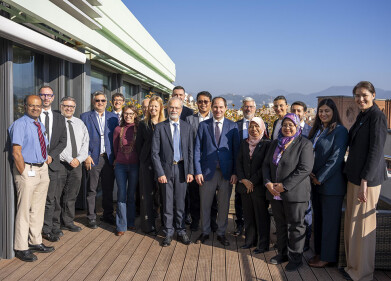Air clean up
The Pros & Cons of Pesticides and Fertilizers
May 21 2015
Pesticides and fertilizers are an important way to increase the amount of food we produce, which has a direct effect on lowering prices in stores. But many pesticides and fertilizers are poisonous, not only to humans, but other species of animals and plants. So there has to be a balance between the benefit of using them and the risk to the surrounding areas.
What are pesticides?
A pesticide is a substance used to kill unwanted plants, fungi, insects or animals. Pesticides are used in many different environments, from gardens, houses, shops, farms etc. and there are thousands of different products available.
Typically, the majority of pesticides used these days have been artificially created by researchers and mass produced. The very nature of their use means that some of them can be extremely hazardous, and can pollute the air, the land, other crops, waterways. They can even kill wild animals, domestic pets and humans. Pesticides are available in three different forms; powders, liquids and aerosols. They can be grouped according to the types of pests they kill, the method of application or the chemical content.
The pros of using pesticides and fertilizers
In the majority of cases, pesticide use is the only way to control organisms that cause diseases. Using pesticides can actually benefit human health by eliminating outbreaks of disease, due to rodent or insect invasions. Buildings are protected by pesticide use as they prevent the spread of termite infestations.Pesticides are not only used to kill unwanted pests, they can be used to sterilise drinking and recreational water. They are used as a strong disinfectant, most importantly in hospital operating rooms, and to sterilise surgical instruments.
The pesticide industry provides employment for a wide range of society, from distribution, dealers, and commercial applicators, pest controllers, all of whom pay their taxes and contribute to local and state economies. Using pesticides allows a wider range of food, at affordable prices, through a broader selection of retailers.
The cons of using pesticides and fertilizers
Recent studies show that sustained use of certain pesticides are causing a significant amount of damage to a ‘wide range of beneficial invertebrate species’. They also state that they are a ‘key factor in the decline of bees’.
There has always been concern about the use of neonicotinoids and fipronil, but only now has a full analysis shown a clear threat to the environment, similar to that of the now banned DDT. The Task Force on Systemic Pesticides, an independent group of international scientists, found that systemic pesticides are different to most other pesticides in one crucial factor. Unlike most other pesticides that tend to remain on the surface of the plant, systemic pesticides are ingested by the vascular system of plants. They are then transported throughout all the plant tissues, the leaves, the stem, roots, flowers, as well as the nectar and pollen.This means that the chemicals in these pesticides can be found extensively within the environment, in the air, water and land. They are also able to persist and build up, particularly after repeated applications.
Research has shown that neonicotinoids and fipronil disrupt neural transmissions in the central nervous system of some organisms. This has a particularly adverse effect on invertebrates but also some vertebrates. The most affected types of organisms are earthworms, but a close second are bees. Further studies have shown that high concentrations of neonics negatively affected the bee’s longevity, individual navigation, food collection, navigation, and resistance to disease. Bees are one of the most important insects that help to pollinate our plants. Pollination fertilises the plant so that it grows and produces food. Through pollination, at least 30% of the world’s food is created. Without bees to pollinate and fertilise our plants, many, including essential food crops, would die off. Many pesticides have now been banned from use, because of the negative impact they have had on bees.
Should we use pesticides?
Pesticides are a cheap and affordable way to control weeds and insects in the environment. In Third World countries, it may be considered essential to use pesticides as this is much preferred to famine. However, in more wealthy countries, perhaps the onus should be on research to develop less poisonous pesticides, in order to protect our surroundings.
For more information on the global effects of pesticides see the following report Systemic Pesticides Pose Global Threat to Biodiversity and Ecosystem Services.
Events
Feb 05 2025 Nantes, France
Feb 16 2025 Kampala, Uganda
Feb 26 2025 Chennai, India
Feb 26 2025 Tulsa, OK, USA
WATERTECH CHINA (GUANGDONG) 2025
Mar 05 2025 Guangdong, China












